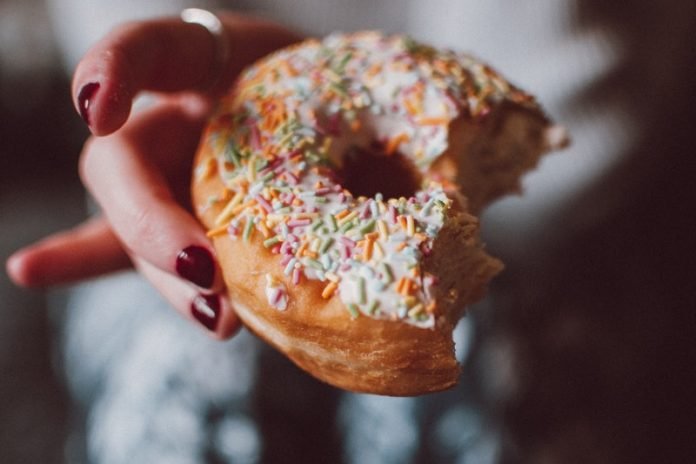
When you’re sleep-deprived, you tend to reach for doughnuts, fries, and pizza.
In a new study, researchers have figured out why you crave more calorie-dense, high-fat foods after a sleepless night—and how to help thwart those unhealthy choices.
They say people should blame it on their nose—or olfactory system—which is affected in two ways by sleep deprivation.
First, it goes into hyperdrive, sharpening the food odors for the brain so it can better differentiate between food and non-food odors.
But then there is a breakdown in the communication with other brain areas that receive food signals. And with that, decisions about what to eat change.
The research was conducted by a team from Northwestern Medicine.
Previous research has shown sleep deprivation increases certain endocannabinoids, which are naturally produced by the body and are important for feeding behavior and how the brain responds to odors, including food smells.
In the study, the team examined 29 men and women, ages 18 to 40. Study participants were divided into two groups.
One got a normal night’s sleep, then four weeks later, were only allowed to sleep for four hours. The experience was reversed for the second group.
The day after each night (good sleep and deprived sleep), scientists served participants a controlled menu for breakfast, lunch, and dinner, but then also offered them a buffet of snacks. Scientists measured how much and what they ate.
The team found participants changed their food choices. After being sleep deprived, they ate food with higher energy density (more calories per gram) like doughnuts, chocolate chip cookies, and potato chips.
The researchers also measured the participants’ blood levels of two endocannabinoid compounds—2AG and 2OG.
One of the compounds, 2-OG, increased after the night of sleep deprivation and this increase was related to changes in food selection.
In addition, scientists put subjects in an fMRI scanner before the buffet.
They then presented them with a number of different food odors and non-food control odors while they observed the piriform cortex, the first cortical brain region that receives input from the nose.
They observed that activity in the piriform cortex differed more between food and non-food odors when subjects were sleep-deprived.
The piriform cortex normally sends information to another brain area, the insular cortex. The insula receives signals that are important for food intake, like smell and taste, and how much food is in the stomach.
But the insula of a sleep-deprived subject showed reduced connectivity (a measure of communication between two brain regions) with the piriform cortex.
And the degree of this reduction was related to the increase in 2-OG and how much subjects changed their food choices when sleep deprived.
The team says other than getting more sleep, it may help to pay closer attention to how our nose sways our food choices.
Sleep deprivation makes the brain more susceptible to enticing food smells, so maybe it might be worth taking a detour to avoid a local doughnut shop next time when people try to catch a 6 a.m. flight.
One author of the study is Thorsten Kahnt, assistant professor of neurology at Northwestern University Feinberg School of Medicine.
The study is published in eLife.
Copyright © 2019 Knowridge Science Report. All rights reserved.



